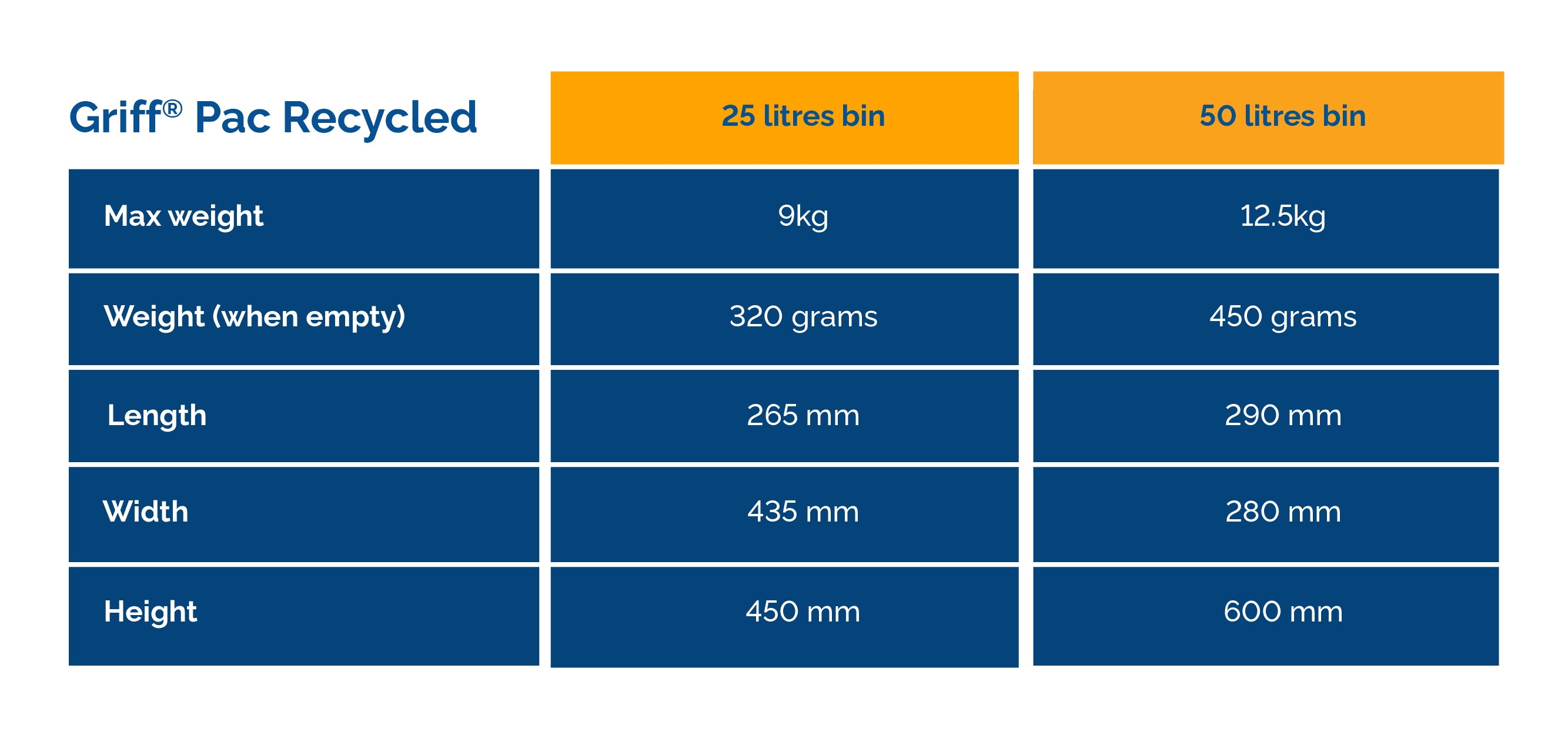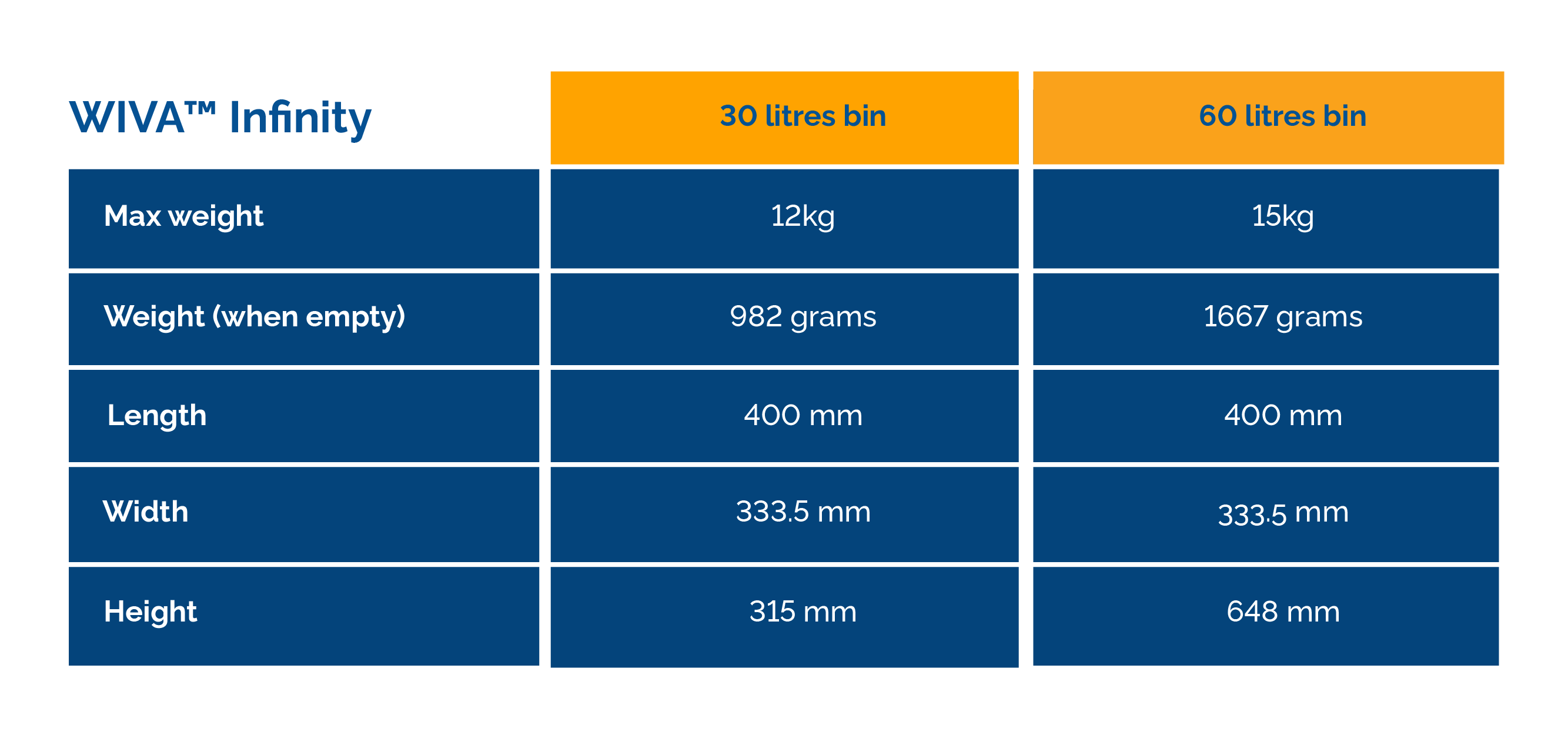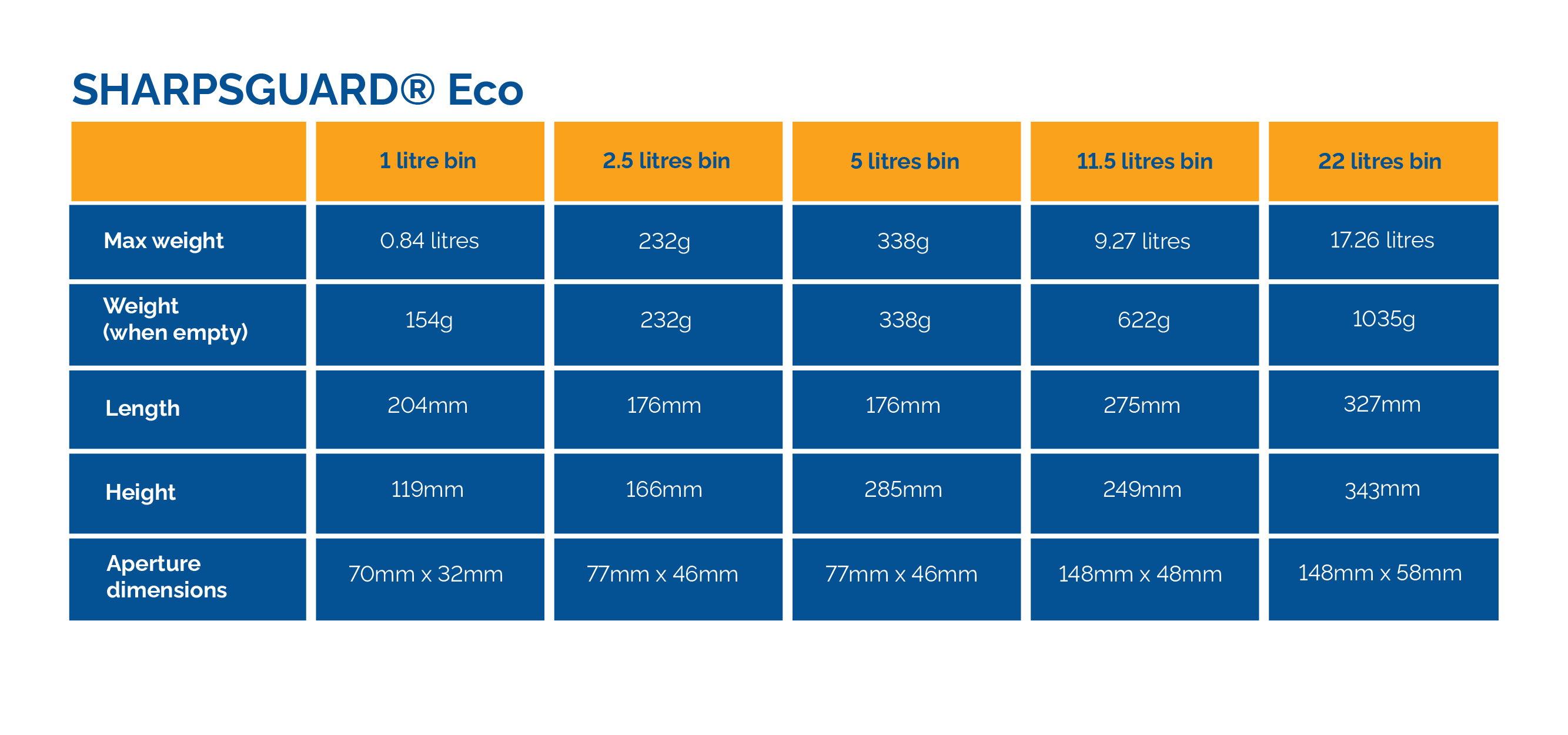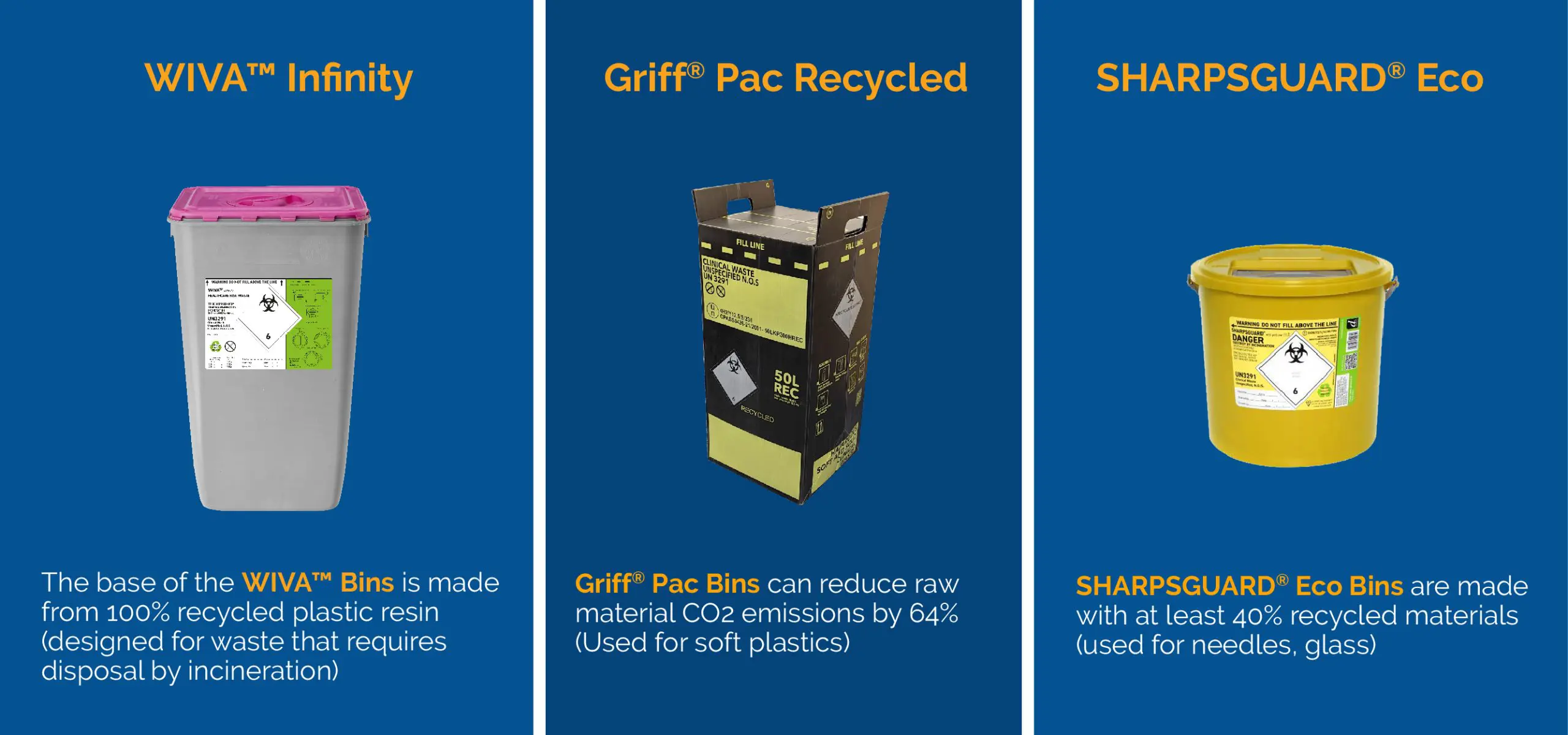Grundon is pleased to announce a new milestone for sustainability in healthcare. The new UN-approved clinical containers are made from recycled plastics, a move that will help significantly reduce NHS carbon emissions.
With approximately 156,000 tonnes of clinical waste produced every year by NHS providers, sustainable innovation is vital to achieving a significant reduction in carbon emissions produced from waste management.
All NHS providers are to deliver a 30% reduction in carbon emissions from clinical waste segregation; a 50% reduction in the carbon emissions produced from wider waste management by 2026 and achieve an 80% reduction by 2028 – 2032.
Thanks to state-of-the-art manufacturing technology and following customer trials at the University of Surrey, Grundon has released a new collection of clinical waste containers made from recycled plastic, conserving natural resources by reducing the need for virgin plastic production. These cost-effective products are a significant step towards meeting the NHS clinical management targets and minimising the environmental impact of plastic waste.
Benefits of Recycled Plastic Clinical Waste Bins
“Our customers have found that switching to responsibly sourced recycled medical waste bins is effortless, as well as highly beneficial in pursuing the NHS net zero carbon emissions targets.”
Dr Shauna Costley
Grundon’s Clinical Compliance & Sustainability Manger
Clinical Containers Product Specifications




Grundon is committed to reducing single-use plastics in healthcare
Dr Shauna Costley (Grundon’s Clinical Compliance & Sustainability Manger) is leading the drive for improving sustainability in clinical waste management and described her vision for how these containers are benefiting our customers and contributing to the pursuit of a more circular economy.
“It is exciting to be able to provide alternative products to our clients that are designed to reduce consumption of raw materials by replacing them with waste materials in their design without compromising the integrity of the bin in any way.”
Dr Shauna Costley
Grundon’s Clinical Compliance & Sustainability Manger
Andy Stratton, (Grundon’s Clinical Commercial Manager), has worked to drive Grundon’s innovation within the healthcare sector to pursue a more circular economy and help the NHS reach its net zero targets.
“Grundon has always been proud of being one step ahead and being the Benchmark for innovation. I see this as only the start and we are working on new projects and services that will ensure our customers benefit from our efforts to improve sustainability whilst ensuring value for money for our customers.”
Andy Stratton
Grundon's Clinical Commercial Manager
Grundon’s clinical waste team is always keen to incorporate sustainable advancements for the betterment of the environment and our customers’ sustainability goals.
To place an order or for further information, please contact us at clinical@grundon.com
Grundon’s clinical waste team is always keen to incorporate sustainable advancements for the betterment of the environment and our customers’ sustainability goals.
To place an order or for further information, please get in touch.
